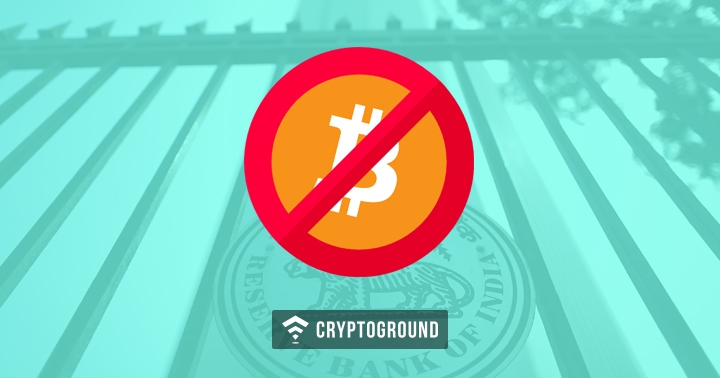India has been frequently been making it to the news when it comes to the world of cryptocurrencies and for all the wrong reasons too. The Reserve Bank of India, the apex banking authority in the country issued a circular in April, instructing all regulated bodies to stop dealing with crypto-businesses in three months’ time. The three-month deadline ends tomorrow, the 5th of July. In light of this policy, Indian cryptocurrency exchanges have begun to disable fiat withdrawals and deposits.
Zebpay, one of the biggest cryptocurrency exchanges in the country has announced that as of today, they will no longer allow rupee-based transactions or withdrawals to take place. The company had mailed a notice to their users well in advance and had constantly kept sending reminders of the fact that this was about to happen. Today, the exchange announced on Twitter that:
Dear User,
Today we are disabling the rupee deposit and withdrawal options on the Zebpay app. This is being done in light of the bank account closures as per the RBI guideline.
Zebpay’s announcement comes as no surprise as practically every investor in the country saw this coming. The RBI’s order was challenged in the court of law, and in the first petition, the Supreme Court of India has sided with the Reserve Bank of India - and has denied any injunction or a stay order. The next hearing, which is expected to be a major one - and a deciding factor on this case - is all set to be heard on the 20th of July.
While the Reserve Bank issued ban is absolute and there are no exceptions, it is likely that this is a temporary order. The government has been working on cryptocurrency related regulations, as revealed by the Department of Economic Affairs secretary Subash Chandra Garg, who said:
“We are fairly close to developing a template [for crypto regulations] that we think is in the best interests of the country. We have prepared a draft which we intend to discuss with the committee members in the first week of July. ”
Indian cryptocurrency exchanges have meanwhile found other ways to circumvent the ban - as they are now moving towards crypto-to-crypto trading and introduced several currencies providing the users with a large option to buy before the ban takes place. Moreover, some exchanges are also setting up peer to peer networks to facilitate cash transactions. Indian traders too are relying on options such as LocalBitcoins and other platforms which facilitate face to face cash transactions.
The Indian government, which has been quite strict on cryptocurrencies has been rather supportive of the underlying blockchain technology. The country’s government has used it in various projects such as those of providing degree certificates, for the welfare of the farmers as well as for curbing out the fake drugs from the pharmaceutical sector of the country. Indian Prime Minister too has been appreciative of the technology, calling blockchain a ‘disruptive’ innovation.
























